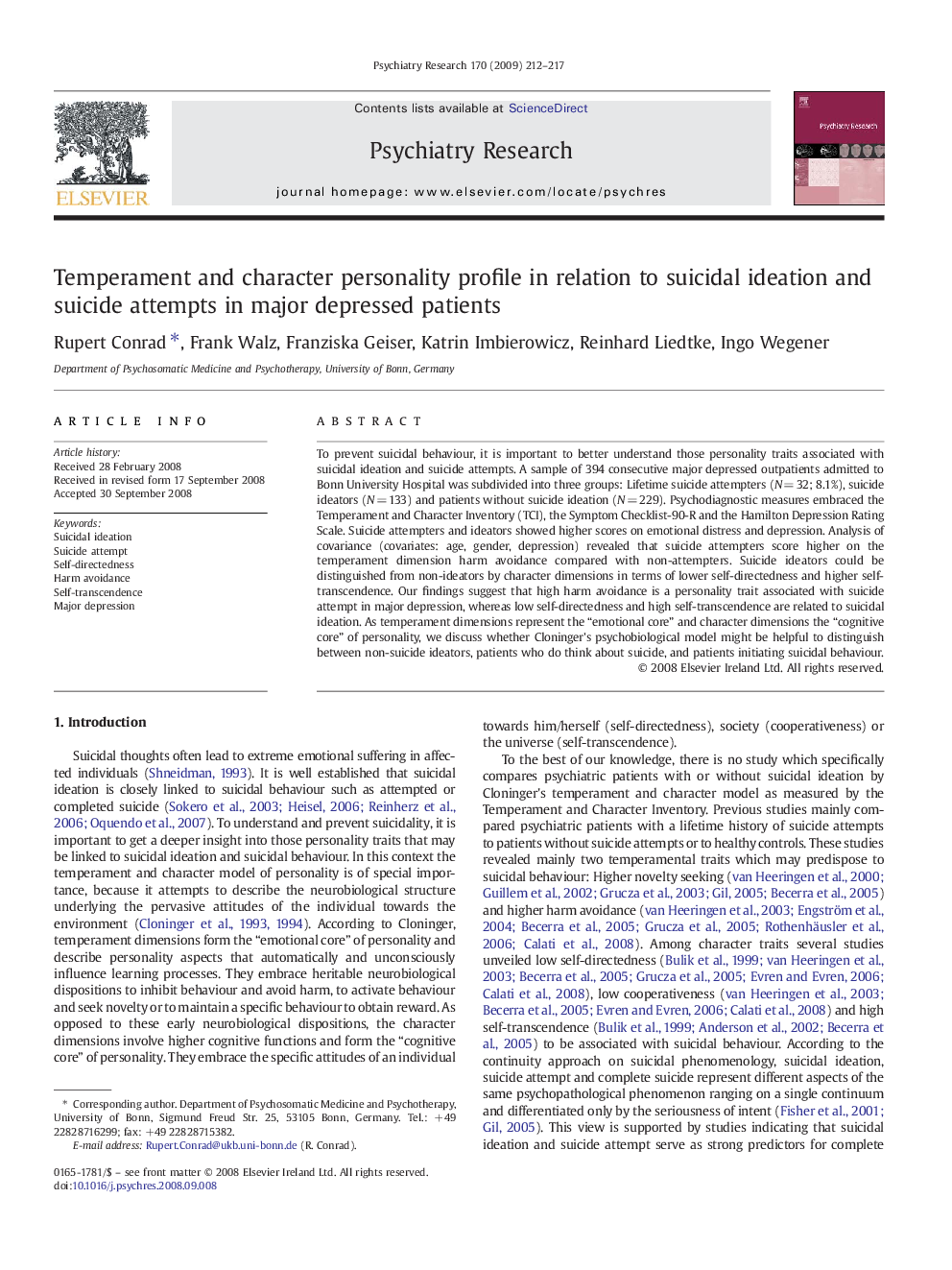| Article ID | Journal | Published Year | Pages | File Type |
|---|---|---|---|---|
| 332794 | Psychiatry Research | 2009 | 6 Pages |
To prevent suicidal behaviour, it is important to better understand those personality traits associated with suicidal ideation and suicide attempts. A sample of 394 consecutive major depressed outpatients admitted to Bonn University Hospital was subdivided into three groups: Lifetime suicide attempters (N = 32; 8.1%), suicide ideators (N = 133) and patients without suicide ideation (N = 229). Psychodiagnostic measures embraced the Temperament and Character Inventory (TCI), the Symptom Checklist-90-R and the Hamilton Depression Rating Scale. Suicide attempters and ideators showed higher scores on emotional distress and depression. Analysis of covariance (covariates: age, gender, depression) revealed that suicide attempters score higher on the temperament dimension harm avoidance compared with non-attempters. Suicide ideators could be distinguished from non-ideators by character dimensions in terms of lower self-directedness and higher self-transcendence. Our findings suggest that high harm avoidance is a personality trait associated with suicide attempt in major depression, whereas low self-directedness and high self-transcendence are related to suicidal ideation. As temperament dimensions represent the “emotional core” and character dimensions the “cognitive core” of personality, we discuss whether Cloninger's psychobiological model might be helpful to distinguish between non-suicide ideators, patients who do think about suicide, and patients initiating suicidal behaviour.
